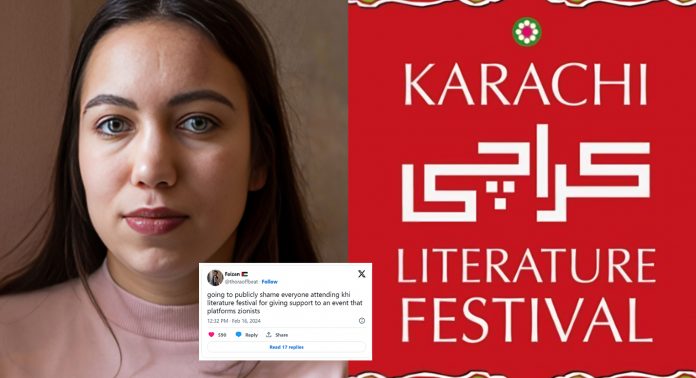The decision to cancel Othmann’s sessions came after The Feminist Collective, a leftist feminist group, voiced their concerns through an open letter. Following this, Othmann’s name was discreetly removed from the list of speakers on the festival’s website, leading to speculation about the status of the relevant sessions.
Raheela Baqai, organizer of the Karachi and Islamabad Literature Festivals, confirmed the cancellation, stating that Othmann would no longer be attending KLF and her sessions were canceled. However, Baqai declined to provide specific details regarding the reasons for the cancellation, citing the possibility of last-minute changes.
The controversy surrounding Othmann’s invitation raised questions about the festival’s selection process. In response, Baqai clarified that speakers are chosen based solely on their literary contributions and potential to enrich the festival experience.
Regarding this year’s theme, Baqai emphasized KLF’s commitment to providing an intellectual space for constructive dialogue and positive change. The festival aims to foster discussions that promote sustainability and challenge existing mindsets, offering attendees opportunities to engage with diverse perspectives and inspiring speakers.
Additionally, a notice has been posted on KLF’s website informing visitors about Othmann’s inability to attend the festival and the subsequent cancellation of her sessions. The statement apologizes for any inconvenience caused.
Othmann, who has faced criticism for her controversial statements, including those perceived as anti-Islam and anti-Palestine, was originally scheduled to present at two sessions during the festival. Criticism was particularly directed at Othmann’s remarks during a panel discussion by German newspaper TAZ, where she allegedly labeled Muslim immigrants, including Palestinians, as “jihadists” and “terrorists” for supporting Palestinian resistance.
Furthermore, Othmann’s criticism of individuals like German-Palestinian journalist Alena Jabarine and her dismissal of the Boycott, Divestment and Sanctions (BDS) movement contributed to the controversy. Her social media activity, including tweets on X (formerly Twitter), further fueled divisive narratives by equating support for Palestinian resistance with anti-Semitism.
